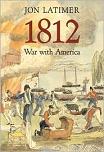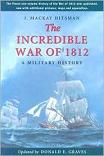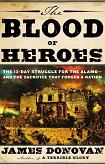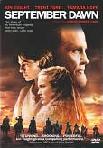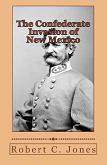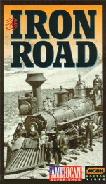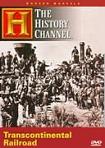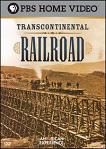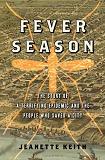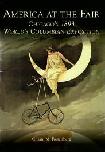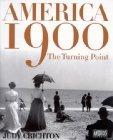
Robber Baron Era
- 1875: The United States was taken off the bimetal gold/silver standard.
- 1875 Jan 22: Birthday of cinema pioneer D.W. Griffith; he died in 1948.
- 1875 Jan 24: Birthday of painter Maynard Dixon in Fresno, California; he died in 1946.
- 1875 Jan 26: Dr. Green received a patent for the first electric dental drill.
- 1875 May 17: Running of the first Kentucky Derby horserace in Lexington, Kentucky.
- 1875 Sept 1: Birthday of author Edgar Rice Burroughs in Chicago, Illinois; the creator of Tarzan died in 1950.
- 1875 Dec 4: William Marcy 'Boss' Tweed, head of New York City's corrupt Tammany Hall political organization, escaped from jail and fled the country.
- 1876
- The Dewey Decimal System was first published; it is now widely used around the world; invented by librarian Melvil Dewey [1851-1931].
- Founding of Adams Sons & Co., makers of chicle-based chewing gum; added licorice flavoring in 1884, introduced Adams' Black Jack Gum, the first flavored chewing gum
in America.
- Founding of Chase Candy Co., which in 1918 created the Cherry Mash® candy bar.
- Melville Bissell of Grand Rapids, Michigan invented the carpet sweeper; patent received & company founded
same year.
- Hires Root Beer soft drink introduced by pharmacist Charles Hires in Philadelphia, PA.
- 1876 Feb 2: Founding of the National League of Professional Baseball Clubs in New York.
- 1876 March 7: Alexander Graham Bell [1847-1922] received a patent for his telephone.
- 1876 March 10: First voice transmission by telephone, as Alexander Graham Bell's lab assistant heard him say "Mr. Watson, come here."
- 1876 June: Publication of Mark Twain's novel "The Adventures of Tom Sawyer".
- 1876 June 25: Battle of the Little Big Horn in Montana Territory: Sioux & Cheyenne warriors
wiped out LtCol George Armstrong Custer and his 7th Cavalry troops.
- 1876 Aug 1: Colorado was admitted to the Union as the 38th state.
- 1876 Aug 2: Frontiersman 'Wild Bill' Hickok was shot and killed from behind
while playing poker at a saloon in Deadwood, Dakota Territory; Hickock's poker hand
of all-black aces and eights has entered Western lore as the 'dead man's hand'.
- 1876 Aug 8: Inventor Thomas Alva Edison [1847-1931] received a patent for his mimeograph duplicator.
- 1877 Feb 2: Birthday of Canadian author Frank L. Packard in Montreal, Quebec; he died in 1942 at age 65.
- 1877 May 8: The first Westminster Kennel Dog Show opened.
- 1877 Nov 21: Inventor Thomas Alva Edison [1847-1931] announced his invention of the phonograph.
- 1878: The first telephone directory was published in New Haven, Connecticut; it contained 50 names.
- 1878 Jan 11: The start of milk delivery in sterilized glass bottles, celebrated each year as National Milk Day.
- 1878 Jan 28: The first commercial telephone switchboard began operation in New Haven, Connecticut.
- 1878 Feb 19: Inventor Thomas Alva Edison [1847-1931] received a patent for his phonograph.
- 1878 Feb 22: F.W. Woolworth opened his first store in Utica, New York; that store failed and he opened a second store in Lancaster City, Pennsylvania on 17 July 1879; the chain folded in 1997.
- 1878 June: Photography pioneer Eadweard Muybridge [1830-1904] took a series of still photographs of the horse Sallie Gardner running at a gallop past a dozen cameras, which are considered the direct predecessor to motion pictures. { watch video made from those 1878 still photographs }
- 1878 Aug: A second yellow fever epidemic (after 1873) panicked the citizens of Memphis, Tennessee; about 18,000 people died, and so many fled the area that the city lost its charter until recovery in 1893.
- 1878 Aug 21: The American Bar Assn. was founded in Saratoga, New York.
- 1878 Sept 20: Birthday of muckraker Upton Sinclair in Baltimore, Maryland; he died in 1968.
- 1879 March: End of the worldwide Long Depression that lasted 65 months (triggered by the New York Stock Exchange Panic of September 1873).
- 1879 March 14: Birthday of physicist Albert Einstein in Ulm, Germany; he died in Princeton, New Jersey in 1955.
- 1879 May 5: U.S. Supreme Court decided Reynolds vs. U.S., finding that religious beliefs, such as polygamy, are not a defense in criminal prosecutions.
- 1879 July 20: The first Uncle Remus plantation fable was published in the Atlanta Constitution news-paper; the first 34 stories by Joel Chandler Harris [1848-1908] were published in book form in 1880.
- 1879 Sept 19: Birthday of author Louis Joseph Vance in New York City; he died there mysteriously in 1933.
- 1879 Oct 21: Inventor Thomas Alva Edison [1847-1931] perfected a workable electric light at his laboratory in Menlo Park,
New Jersey.
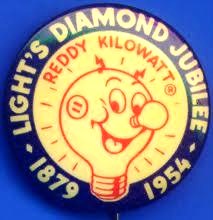 | "Light's Diamond Jubilee" [4-network simulcast Oct 1954]
2-hour simulcast on the four U.S. networks: ABC, CBS, NBC & Dumont; credited directors include Christian Nyby, Norman Taurog, King Vidor, William A. Wellman & Bud Yorkin; credited writers include G.K. Chesterton, Ben Hecht, producer David O. Selznick, Irwin Shaw, Max Shulman, John Steinbeck, and Mark Twain; featuring Judith Anderson, Lauren Bacall, Robert Benchley, Walter Brennan, Joseph Cotten, Dorothy Dandridge, Dwight D. Eisenhower, George Gobel, Helen Hayes, Guy Madison, Harry Morgan, David Niven, Kim Novak, Erin O'Brien-Moore, Debbie Reynolds
DVD/Blu-ray not available • full credits at IMDb
partial videos at YouTube: Part 1 [5:20] •
Part 2 [12:25]
|
- 1879 Nov 4: Birthday of American humorist Will Rogers in Oologah, Indian Territory (Oklahoma); he died at age 55 in a plane crash at Point Barrow in Alaska Territory in 1935.
- 1879 Nov 4: Brothers James & John Ritty of Dayton, Ohio received a patent for the first cash register machine.
- 1879 Dec 20: Inventor Thomas Alva Edison [1847-1931] privately demonstrated the incandescent electric light at Menlo Park,
New Jersey.
- 1879 Dec 31: First public demonstration of Edison's incandescent light at Menlo Park, New Jersey.
- 1880: Samuel Bath Thomas purchased a bakery in Manhattan and featured Thomas' English muffins (which were unknown in England).
- 1880 Jan 6: Birthday of silent movie cowboy star Tom Mix in Mix Run, Pennsylvania;
he died in Florence, Arizona in 1940.
- 1880 Jan 17: Birthday of silent-era studio head Michael 'Mack' Sennett in Danville,
Quebec, Canada; he died at the Motion Picture Home in Woodland Hills, California in 1960.
- 1880 Jan 27: Inventor Thomas Alva Edison [1847-1931] received a patent for his electric incandescent lamp.
- 1880 Jan 29: Birthday of vaudeville & movie comedian W.C. Fields in Philadelphia,
Pennsylvania; he died in Pasadena, California in 1946.
- 1880 March 26: Birthday of travel writer Duncan Hines [1880-1959] in Bowling Green, Kentucky.
- 1880 Sept 12: Birthday of author / curmudgeon H.L. Mencken in Baltimore, Maryland; he died there in 1956.
- 1880 Oct 4: Birthday of sportswriter & author Damon Runyon in Manhattan, Kansas; he died in 1946 in New York City at age 66.
- 1880 Oct 15: Birthday of mystery author Arthur B.
Reeve in Patchogue, Long Island, New York; he wrote the Prof. Craig Kennedy mystery novels & stories and died in 1935.
- 1880 Oct 27: Theodore Roosevelt married his first wife, Alice Lee.
- 1880 Nov 12: Harper & Brothers, New York published the novel "Ben-Hur" by
Gen. Lew Wallace [1827-1905].
- 1881 Feb 19: Kansas prohibited the manufacture or sale of alcoholic beverages within the state.
- 1881 March 8: Silver spike ceremony in Deming, New Mexico joining the Second Transcontinental Railroad (Southern Pacific from the west, AT&SF from the east).
- 1881 March 28: Formation of the Barnum & Bailey Circus by the merger of P.T. Barnum's Greatest Show On Earth with the Cooper &
Bailey Circus; later purchased by the Ringling Brothers (1907), and finally merged as the Ringling Brothers and Barnum &
Bailey Circus in 1919.
- 1881 May 21: Clara Barton [1821-1912] founded the American Red Cross.
- 1881 July 2: Charles J. Guiteau shot President James A. Garfield at the Baltimore & Potomac Railroad Passenger Terminal in Washington, DC; Garfield died the following September.
- 1881 July 8: Druggist Edward Berners of Two Rivers, Wisconsin served the first 'ice cream sundae', putting ice cream in a dish and pouring flavoring syrup for soda water (not allowed on Sundays) on top.
- 1881 July 14: Sheriff Pat Garrett killed outlaw Billy the Kid in Fort Sumner, New Mexico.
- 1881 Sept 19: President Garfield died of his wounds, 2½ months after being shot by an assassin; Vice President Chester A. Arthur became President.
- 1881 Oct 15: Birthday of British humorist Pelham Grenville 'P.G.' Wodehouse in Guildford, Surrey, England; he is most famous for the comic novels featuring feather-brained Bertie Wooster and his wise valet Jeeves; he died in America in 1975 at age 93.
- 1881 Oct 26: 'Gunfight at the O.K. Corral' took place in Tombstone, Arizona; Ike Clanton's gang fought against U.S. Deputy Marshal Virgil Earp, his deputized brothers Wyatt & Morgan, and dentist 'Doc' Holliday; three Clantons were killed and Doc, Virgil & Morgan were wounded.
- 1881 Dec 31: Mayor James R. Toberman switched on new electric street lighting in Los Angeles, California.
- 1882 Jan 18: Birthday of A.A. Milne [1882-1956] in Kilburn, London, England; he created "Winnie The Pooh" as stories for his son.
- 1882 March 22: Congress passed a law outlawing polygamy, which was signed by President Arthur.
- 1882 April 3: Outlaw Jesse James was shot in the back of the head by gangmember Robert Ford in St. Joseph, Missouri.
- 1882 July 22: Birthday of painter Edward Hopper in Upper Nyack, New York; he died in 1967.
- 1882 Sept 5: The first Labor Day Parade, in New York City.
- 1882 Sept-Dec: Railroad hireling Roscoe Conklin gave purjured testimony during the San Mateo County v. Southern Pacific Railroad case.
- 1882 Nov 6: Birthday of silent era studio head Thomas H. Ince in Newport, Rhode Island; he died mysteriously in 1924 in Beverly Hills, California.
- 1883
- Oscar Mayer opened a butcher shop in Chicago with his brother; company acquired by General Foods in 1981.
- Legend has it that when a printer in Cheyenne, Wyoming ran out of white paper for the local telephone directory,
he used yellow paper and thus invented the Yellow Pages.
- The original Edco electric fan went on the market.
- 1883 Jan 16: The U.S. Civil Service Commission was created by the Pendleton Civil Service Reform Act.
- 1883 Feb 2: Birthday of pulp author Johnston McCulley in Ottawa, Illinois; the creator of caped crusader
El Zorro (in 1919) died in Los Angeles, California in 1958.
- 1883 Feb 3: Birthday of author Clarence E. Mulford [1883-1956] in Streator, Illinois; the creator of Western hero Hopalong Cassidy died in Maine in 1956.
- 1883 May 23: Birthday of silent movie star Douglas Fairbanks, Sr. in
Denver, Colorado; he died in Santa Monica, California in 1939.
- 1883 May 24: The Brooklyn Bridge opened to traffic over the East River between Manhattan Island in New York City and Long Island in New York State.
- 1883 June 5: Birthday of economist John Maynard Keynes in Cambridge, England; he died in 1946.
- 1883 July 29: Birthday of Italian dictator Benito Mussolini; he was shot to death by a mob of partisans in April 1945.
- 1883 Aug 26-27: The island volcano Krakatoa in the Dutch East Indies (modern-day Indonesia) began eruptions and then exploded the next day, killing as many as 36,000 people. The noise of the event was heard 3,000 miles away, and ash and smoke circled the globe, some say for several years.
- 1883 Sept 8: The third major transcontinental railroad, the Northern Pacific Railway, was completed; the ceremonial gold spike was driven at Gold Creek,
Montana Territory.
- 1883 Nov 18: The General Time Convention, a system of standard time zones, went into effect in the U.S. & Canada replacing local time settings.
- 1884: Creation of the Louisville Slugger baseball bat by 17-year-old John A. 'Bud' Hillerich, whose father owned a woodworking shop.
- 1884 Jan 2: Birthday of pioneer filmmaker Oscar Micheaux in Metropolis, Illinois; he died in Charlotte, North Carolina in 1951.
- 1884 Feb 1: The first section, or fascicle, of the Oxford English Dictionary was published in London.
- 1884 March 13: Standard Time went into effect across the United States.
- 1884 May 8: Birthday of Harry S. Truman in Lamar, Missouri; he served as U.S. Vice President [1945] and U.S. President [1945-53], and died in 1972 in Kansas City, Missouri.
- 1884 June 5: Civil War leader Gen. William T. Sherman refused the Republican nomination for President with the classic statement, "I will not accept if nominated and will not serve if elected."
- 1884 June 15: Birthday of silent movie comedy star Harry Langdon in Council Bluffs, Iowa; he died in Los Angeles, California in 1944.
- 1884 October: First U.S. patent for manufacture of 'peanut paste' received by Canadian chemist Marcellus Gilmore Edson [1849-1940].
- 1884 Dec: Publication in U.K. of "The Adventures of Huckleberry Finn" novel by American author Mark Twain [1835-1910]; U.S. publication February 1885.
- 1884 Dec 6: Army engineers completed the Washington Monument obelisk by placing an aluminum capstone at its peak.
- 1885: Charles Alderton of Waco, Texas invented the Dr. Pepper™ soft drink; the Dr. Pepper Museum opened in 1991.
- 1885 Feb 7: Birthday of author Sinclair Lewis in Sauk Centre, Minnesota; he was awarded the Pulitzer Prize for The Novel in 1926 (but refused it) and the Nobel Prize for Literature in 1930; he died in Rome, Italy in 1951 at age 65.
- 1885 Feb 18: U.S. publication of Mark Twain's novel "The Adventures of Huckleberry Finn".
- 1885 Feb 21: Dedication of the Washington Monument cenotaph.
- 1885 March 26: Eastman Dry Plate & Film Company of Rochester, New York manufactured the first commercial motion picture film.
- 1885 June: Arrival of the Statue of Liberty in New York Harbor from France, aboard the sailing ship Isere.
- 1885 July 29: Birthday of silent movie actress Theda Bara in Cincinnati, Ohio; she quit acting in 1926 and died in 1955 in Los Angeles, California.
- 1885 Sep 2: Miners working in the Union Pacific coal mine in Rock Springs, Wyoming were struggling to unionize and strike for better working conditions, which was thwarted when the mine owners began hiring Chinese labor for even less; 150 white miners brutally attacked their Chinese co-workers, killing 28 and wounding 15 others, and driving several hundred more out of town.
- 1885 Sep 22: Birthday of Erich von Stroheim in Vienna, Austria-Hungary; the director of "Greed" [1924] and other films died in 1957 near Paris, France.
- 1885 Nov 7: Canada's transcontinental Canadian Pacific Railway was completed at a 'last spike' ceremony at Craigellachie, British Columbia.
- 1886: Opening of the first golf course in the U.S. by John Hamilton Gillespie in Sarasota, Florida.
- 1886 Feb 9: Milton Hershey founded a candy company in Lancaster, Pennsylvania.
- 1886 May 4: 'The Haymarket Massacre' of labor strikers in Chicago, Illinois.
- 1886 May 8: Pharmacist John Styth Pemberton of Atlanta, Georgia invented the flavor syrup for Coca-Cola® soft drink, arguably the most successful product in history.
- 1886 May 10: The U.S. Supreme Court ruled in "Santa Clara County v. Southern Pacific Railroad Company" that corporations are 'persons' having the same rights as human beings, based on the 14th Amendment (which was intended to protect the rights of former slaves). [story]
- 1886 Sept 4: Apache leader Geronimo [1829-1909] and his followers surrendered to Gen. Nelson Miles at Skeleton Canyon in Arizona Territory.
- 1886 Oct 10: Debut of the tuxedo dinner jacket at the Autumn Ball in Tuxedo Park, New Jersey.
- 1886 Oct 28: Dedication of the Statue of Liberty in New York Harbor by President Cleveland.
- 1886 Nov 18: Birthday of Hollywood screenwriter Frances Marion in San Francisco, California; she died in 1973.
- 1886 Dec 1: Birthday of mystery author Rex Stout in Noblesville, Indiana; the creator of Nero Wolfe & Archie Goodwin died in 1975.
- 1886 Dec 8: The Federation of Organized Trades & Labor Unions was reorganized as the American Federation of Labor, in Columbus, Ohio; Samuel Gompers [1850-1924] was president for over 40 years.
- 1886 Dec 24: Birthday of movie director Michael Curtiz in Budapest, Austria-Hungary; he died in Hollywood, California in 1962.
- 1887 Jan 10: Birthday of poet Robinson Jeffers in Allegheny, Pennsylvania; he died alone at Tor House in Carmel, California in 1962.
- 1887 Jan 20: U.S. Senate approved an agreement to lease Pearl Harbor in Hawaii as a naval base.
- 1887 March 11: Birthday of movie director Raoul Walsh in New York City; he died in Simi Valley, California in 1980.
- 1887 March 22: Birthday of Leonard 'Chico' Marx in New York City; the oldest member of 'The Marx Brothers' comedy team died in Hollywood, California in 1961.
- 1887 March 24: Birthday of silent movie comedy star Roscoe Conkling 'Fatty' Arbuckle in Smith Center, Kansas; he died in New York City in 1933.
- 1887 Oct 4: The New York Herald newspaper founded its Paris Herald edition in France, which later became the International Herald Tribune, operated since 2003 as the Global Edition of The New York Times.
- 1887 Nov 15: Birthday of painter Georgia O'Keeffe near Sun Prairie, Wisconsin; she died in 1986 in Santa Fe, New Mexico.
- 1888 June 13: Congress established the Department of Labor.
- 1888 July 23: Birthday of mystery author Raymond Chandler in Chicago, Illinois; he died in Laguna Beach, California in 1959.
- 1888 Sept 4: George Eastman received a patent for his roll-film camera and registered his Kodak trademark.
- 1888 Oct 9: The public was first admitted to the Washington Monument.
- 1888 Oct 15: Birthday of Willard Huntington Wright, in Charlottesville, Virginia; he wrote the Philo Vance mystery novels under the pseudonym S.S. Van Dine and died in New York City in 1939.
- 1888 Oct 16: Birthday of playwright Eugene O'Neill in New York City; he died in Boston, Massachusetts in 1953.
- 1888 Nov 23: Birthday of Arthur Adolph 'Harpo' Marx in New York City; the second-oldest member of 'The Marx Brothers' comedy team died in Los Angeles, California in 1964.
- 1889
- Founding of McCormick Spice Co. in Baltimore, Maryland.
- First U.S. pedestrian killed by an automobile, when Arthur Smith ran over Henry Bliss at the corner of 74th Street and Central Park West in New York City.
- The first coin-operated telephone was installed at a bank in Hartford, CT.
- First experiments with true motion pictures on film by inventor William K. Dickson at Edison's lab in New Jersey.
{Watch "Monkeyshines" clips [1:10] at YouTube.}
- 1889 Jan 5: First printed mention of the hamburger sandwich, in a Walla Walla, Washington newspaper.
- 1889 April 15: Birthday of painter & muralist Thomas Hart Benton in Missouri; he died there in 1975.
- 1889 April 16: Birthday of silent film star Charles Chaplin in London, England; he died in 1977 in Switzerland.
- 1889 April 20: Birthday of Adolf Hitler [1889-1945] in Braunau am Inn, Austria-Hungary; he was dictator of Germany from 1933 to 1945.
- 1889 May 6: The Eiffel Tower in Paris, France opened to the public as part of the Paris World’s Fair.
- 1889 July 8: First publication of The Wall Street Journal.
- 1889 July 17: Birthday of mystery author Erle Stanley Gardner in Malden, Massachusetts; the creator of defense lawyer Perry Mason died at his ranch near Temecula, California in 1970.
- 1889 Nov 2: North and South Dakota were admitted to the Union as the 39th & 40th states.
- 1889 Nov 8: Montana was admitted to the Union as the 41st state.
- 1889 Nov 11: Washington was admitted to the Union as the 42nd state.
- 1889 Nov 14: Departure of Nellie Bly, intrepid reporter for the New York World newspaper, inspired by Jules Verne's 1873 novel to travel around the world in less than eighty days; she completed the trip in 72 days.
- 1889 Nov 15: Emperor Dom Pedro II of Brasil was overthrown and the country declared itself a republic.
- 1889 Nov 23: The first jukebox made its debut at the Palais Royale Saloon in San Francisco, California.
- 1890
- George Bayle, Jr. invented peanut butter.
- Founding of the American Biscuit Co. by Adolphus Green in Chicago; the New York Biscuit Co. was formed by merger of 8 companies;
those two and United States Baking Co. merged in 1898 to form the National Biscuit Co.; first used Nabisco trademark in 1901.
- Kennard Novelty Co. of Baltimore began selling the Ouija Board 'game'.
- 1890 Jan 1: The first 'Tournament of Roses' Parade was held in Pasadena, California.
- 1890 Jan 25: Founding of the United Mine Workers of America.
- 1890 Feb 26: Birthday of silent movie cowboy star Fred Thomson in Pasadena, California; he died in Beverly Hills, California in 1928.
- 1890 March 11: Birthday of visionary engineer Vannevar Bush in Everett, Massachusetts; he died in 1974 at age 84.
- 1890 April 16: Birthday of Gertrude Chandler Warner in Putnam, Connecticut; after a career as a schoolteacher, she revived her 1924 children's novel "The Boxcar Children" and wrote 18 more books from 1949 to 1976; she died in Putnam at age 89 in 1979.
- 1890 April 26: Birthday of comic actor Edgar Kennedy in Monterey County, California; after a career spanning 500 films, he died at the Motion Picture Hospital in Woodland Hills, California in 1948.
- 1890 July 3: Idaho was admitted to the Union as the 43rd state.
- 1890 July 10: Wyoming was admitted to the Union as the 44th state.
- 1890 July 29: Dutch artist Vincent van Gogh died at age 37 of a self-inflicted gunshot wound in Auvers-sur-Oise, France.
- 1890 Sept 24: President Wilford Woodruff of the Church of Jesus Christ of The Latter Day Saints (Mormons) issued a manifesto renouncing the practice of polygamy; the policy change was formally accepted by the church a month later.
- 1890 Sept 25: President Benjamin Harrison signed the law establishing Sequoia National Park in California; administration of the Sequoia & Kings Canyon parks was combined in 1943.
- 1890 Oct 1: President Benjamin Harrison signed the laws establishing Yosemite National Park and Kings Canyon National Park in California.
- 1890 Oct 2: Birthday of Julius Henry 'Groucho' Marx in New York City; the middle member of 'The Marx Brothers' comedy team died in Los Angeles, California in 1977.
- 1890 Oct 9: Birthday of radio evangalist Aimee Semple McPherson near Ingersoll, Ontario, Canada; she died in Oakland, California in 1944.
- 1890 Oct 11: Founding of the Daughters of the American Revolution in Washington, DC.
- 1890 Dec 5: Birthday of movie director Friedrich Christian Anton 'Fritz' Lang in Vienna, Austria; he died in Beverly Hills, California in 1976.
- 1890 Dec 15: Sioux leader Sitting Bull and 11 other tribe members were killed by Indian Police at Grand River, South Dakota.
- 1890 Dec 29: 'Wounded Knee Massacre' of 312 Lakota Sioux Indians in South Dakota, slaughtered by 500 U.S. troops sent to disarm them.
- 1891: William Wrigley, Jr. began selling powdered soap, then baking powder; he added chewing gum packs as an incentive; introduced first Wrigley chewing gum brands in 1892.
- 1891 March 6: The Ames Hydroelectric Generating Plant opened near Ophir, Colorado. The world's first hydroelectric plant provided alternating current electricity that was transmitted 2.6 miles to a motor-driven stamp mill at a gold mine; the power plant is still in use today.
- 1891 April 10: Birthday of cowboy movie & circus star Tim McCoy in Saginaw, Michigan; he died in 1978 at age 86 at his ranch in Arizona.
- 1891 May 6: Irwin H. 'Ike' Hoover began installing the first electric wiring in the White House; he later accepted a full-time position as White House electrician.
- 1891 Aug 24: Inventor Thomas Alva Edison filed patents for the Kinetograph 35mm camera & the Kinetoscope viewer.
- 1891 Sept: Launch of the American factory producing rennet for cheesemaking in Little Falls, New York, as a branch of a Danish company founded in 1874; the company is now Junket Desserts.
- 1891 Dec 21: The first game of the new sport of basketball (invented by Canadian James Naismith) took place at the International Y.M.C.A. Training School in Springfield, Massachusetts.
- 1892: Founding of Geo. A. Hormel & Co. as a small retail store in downtown Austin, Minnesota.
- 1892 Jan 1: Formal opening of the Ellis Island Immigrant Station in New York Harbor.
- 1892 Jan 3: Birthday of author J.R.R. Tolkien in South Africa; he wrote the beloved "The Hobbit" and "The Lord of The Rings" trilogy and other 'high fantasy' fiction, and died at age 81 in 1973.
- 1892 Jan 18: Birthday of movie comedian Oliver Norvell Hardy in Harlem, Georgia; he died in North Hollywood, California in 1957.
- 1892 Jan 28: Birthday of movie director Ernst Lubitsch in Berlin, Germany; he died in Hollywood, California in 1947.
- 1892 May 28: Founding of the Sierra Club in San Francisco, California by naturalist John Muir and others.
- 1892 May 29: Birthday of author & poet Frederick Schiller Faust in Seattle, Washington; his primary pen name was Western author Max Brand; he died in combat in Italy in 1944.
- 1892 Summer: Earliest documented ice cream sundae, advertised by the Platt & Colts Soda Fountain in Ithaca, New York after invention by owner Chester Platt & Rev. John Scott.
- 1892 June-Oct: The Homestead Strike at the Carnegie Steel Mill.
- 1892 July 1: Birthday of 'hard-boiled' mystery author James M. Cain in Annapolis, Maryland; he died in 1977.
- 1892 Aug: The Pledge of Allegiance was created by socialist Francis Bellamy.
- 1892 Aug 23: Birthday of movie cowboy star Hoot Gibson in Tekamah, Nebraska; he died in 1962 at the Motion Picture Home in Woodland Hills, California.
- 1892 Aug 23: The first version of "The Pledge of Allegiance", written by Rev. Francis J. Bellamy, appeared in The Youth's Companion Magazine.
- 1892 Sept 6: Iowa farmer John Froelich [1849-1933] sold his first tractor; he and blacksmith Will Mann invented the first gasoline-powered tractor by cobbling together parts from other machines, and then created the Waterloo Gasoline Traction Engine Company.
- 1892 Sept 7: James J. Corbett knocked out John L. Sullivan in New Orleans to win the world
heavyweight boxing title.
- 1892 Sept 28: The first nightime football game took place in Mansfield, PA.
- 1892 Oct 5: The Dalton Gang train robbers were nearly wiped out in their attempt to rob two banks in Coffeyville, Kansas.
- 1892 Oct 18: Formal opening of the first long-distance telephone line, between Chicago and New York City (it could handle only one call at a time).
- 1892 Oct 23: Birthday of Milton 'Gummo' Marx in New York City; the fourth member of 'The Marx Brothers' comedy team died in Palm Springs, California in 1977.
- 1892 Dec 18: World premičre of "The Nutcracker" ballet by Pyotr Ilyich Tchaikovsky [1840-93] at the Mariinsky Theatre in St. Petersburg, Russia.
- 1893
- William Wrigley, Jr. introduced chewing gum brands Spearmint & JuicyFruit.
- Good & Plenty® candy - oldest branded candy in the United States - introduced by Quaker City Confectionery Co. in Philadelphia, PA.
- The U.S. Census Bureau declared 1893 as the year that 'The American Frontier' ended.
- 1893 Jan 17: A group of businessmen and sugar planters forced Queen Liliuokalani [1838-1917] to abdicate, ending Hawaii's monarchy.
- 1893 Feb: Genius inventor Nikola Tesla
lectured on the principles of 'wireless telegraphy' [broadcast radio] at the Franklin Institute in Philadelphia, PA.
- 1893 Feb 1: Inventor Thomas Alva Edison completed work on the world's first motion picture studio in West Orange, New Jersey.
- 1893 March 1: Genius inventor Nikola Tesla first publicly demonstrated radio by transmitting electromag-netic energy without wires, at a meeting of the National Electric Light Assn. in St. Louis, Missouri.
- 1893 March 2: Congress passed the Safety Appliance Act making automatic air brakes mandatory on all railroad cars; the accident/injury rate for workers dropped 60% within a year.
- 1893 April 20: Birthday of silent movie comedy star Harold Lloyd in Burchard, Nebraska; he died in Beverly Hills, California in 1971.
- 1893 May 1: Opening of the Chicago World's Fair {aka Columbian Exposition), which introduced Aunt Jemima's Pancake Mix, Cracker Jack® snacks, the Ferris Wheel, and AC electric lighting {constructed by inventor Nikola Tesla}; 28 million people attended the Fair, which ended in October.
- 1893 May 9: First public demonstration of Edison's Kinetoscope in Brooklyn, New York.
- 1893 June 13: Birthday of British author Dorothy L. Sayers [1893-1957] in Essex, U.K.
- 1893 June 20: Founding of the first U.S. industrial labor union, the American Railway Union in Chicago, led by Eugene V. Debs.
- 1893 June 27: The financial 'Panic of 1893' was a crash of the New York stock market caused by a run on the gold supply, the worst economic crisis to hit the nation in its history to that point.
- 1893 Aug: Invention of the 'black cow' root beer float by miner & brewer Frank Wisner in Cripple Creek, Colorado.
- 1893 Aug 22: Birthday of author & wit Dorothy Parker in Long Branch, New Jersey; she died in 1967.
- 1893 Aug 29: Founding of Southern California Fruit Exchange by independent citrus growers in California; brand name Sunkist was introduced in 1908.
- 1893 Sept 16: Over 100,000 eager settlers swarmed into the Cherokee Strip during the Oklahoma Land Rush.
- 1893 Sept 21: First short test drive in Springfield, Massachusetts of the horseless carriage built by brothers Frank & Charles Duryea.
- 1893 Oct 6: Introduction of Cream of Wheat® brand farina hot cereal, by Diamond Milling Co. of Grand Forks, North Dakota.
- 1893 Oct 20: Birthday of silent movie actor-director Charley Chase in Baltimore, Maryland; he died in Hollywood, California in 1940.
- 1893 Oct 30: The U.S. Senate approved repeal of the faulty Sherman Silver Purchase Act of 1990.
- 1893 Nov 7: Women gained the right to vote in Colorado.
- 1894: While experimenting with shredded wheat cereal, the Kellogg brothers accidentally invented flaked wheat cereal; they created flaked corn cereal in 1898; Battle Creek Toasted Corn Flake Company was founded in 1906.
- 1894: Founding of Robinson-Danforth Commission Co. to produce animal feed; line of Purina human food products introduced in 1898; company name changed to Ralston Purina in 1902.
- 1894: Publication of the story collection "The Jungle Book" by Rudyard Kipling [1865-1936].
- 1894 Jan 7: Early motion picture experiment at Thomas Edison's studio in West Orange, New Jersey filmed employee Fred Ott taking a pinch of snuff and sneezing. {Watch 3-second 48-frame clip at Archives.org}
- 1894 Feb 1: Birthday of film director John Ford in Cape Elizabeth, Maine; he died in Palm Desert, California in 1973.
- 1894 Feb 3: Birthday of illustrator Norman Rockwell in New York City; he died in 1978 in Stockbridge, Massachusetts.
- 1894 Feb 8: Birthday of movie director King Vidor in Galveston, Texas; he died at his ranch in Paso Robles, California in 1982.
- 1894 March 25: Protest march of 100 men led by Jacob S. Coxey left Massillon, Ohio bound for Washing-ton, DC to make demands of the federal government to create jobs; 500 men arrived in DC five days later; the group was nicknamed "Coxey's Army".
- 1894 March 25: Birthday of Josiah Pitts Woolfolk in Chicago, Illinois; he became quite famous as pulp writer Jack Woodford
in the 1940s and 1950s, and died on 16 May 1971 at Eastern State Hospital in Williamsburg, Virginia (possibly of Alzheimer's).
- 1894 May 27: Birthday of mystery author Dashiell Hammett in Maryland; he died in
New York City in 1961.
- 1894 May-Aug: The 39-day The Pullman Strike in Illinois.
- 1894 June 24: Congress passed a bill making Labor Day a national holiday, on the First Monday of September; soon signed into law by President Garfield.
- 1894 July 4: The Republic of Hawai'i declared itself into existence (to be annexed by the United States four years later).
- 1894 Aug 18: Congress established the Bureau of Immigration.
- 1894 Oct 14: Birthday of American poet E.E. Cummings in Cambridge, Massachusetts; he died at age 67 in 1962.
- 1894 Oct 15: French Army officer Alfred Dreyfus [1859-1935] was arrested on charges of treason.
- 1894 Nov 26: Birthday of American mathematician & philosopher Norbert Wiener
[1894-1964] in Columbia, Missouri; he died in Stockholm, Sweden in March 1964 at age 69.
- 1894 Dec 8: Birthday of humorist James Thurber in Columbus, Ohio; he died in 1961 in New York City.
- 1894 Dec 22: French Army officer Alfred Dreyfus [1859-1935] was convicted at a secret court martial on charges of treason; a public outcry against injustice and alleged
anti-Semitism roiled the country; Dreyfus was pardoned in September 1899 and released; he lived in obscurity until July 1906, when he was exonerated by the military
and returned to active duty with a promotion to Major.
- 1895: Charles William Post introduced cereal-based Postum coffee substitute; introduced Grape-Nuts ready-to-eat cereal in 1897; introduced corn flakes cereal in 1908,
later renamed Post Toasties; purchased Jell-O Company in 1925; company was renamed General Foods on 24 July 1929.
- 1895: Introduction of condensed canned soup by Joseph A. Campbell Preserve Co.
- 1895: Publication of the story collection "The Second Jungle Book" by Rudyard Kipling [1865-1936].
- 1895 Feb 6: Birthday of George Herman 'Babe' Ruth, Jr. in Baltimore,
Maryland; he died in 1948.
- 1895 April 17: The Treaty of Shimonoseki ended the First Sino-Japanese War.
- 1895 May 6: Birthday of Silent Era sex symbol Rudolph Valentino in Castellaneta,
Italy; he died at age 31 in New York City in 1926.
- 1895 June 4: Henry Ford made a successful test run in his 'quadricycle' horseless carriage thru the pre-dawn streets of Detroit, Michigan.
- 1895 July 12: Birthday of inventor / thinker R. Buckminster Fuller in Milton,
Massachusetts; he is most famous for inventing the geodesic dome, and died in Los Angeles, California in 1983.
- 1895 October: After a short version of 18,000 words was syndicated to 700+ American newspapers, an edited 50,000 word version of "The Red Badge of Courage" by Stephen Crane [1871-1900] was published in book form by D. Appleton & Company; the full 55,000 word version was published in 1982 by W.W. Norton & Company.
- 1895 Oct 4: Birthday of film comic Buster Keaton in Piqua, Kansas; he died at the Motion
Picture Home in Woodland Hills, California in 1966.
- 1895 Oct 15: Patent for shredded wheat awarded to Henry D. Perky of Denver, Colorado; credited
as the first mass-produced & nationally-distributed ready-to-eat cereal.
- 1895 Nov 8: German physicist Wilhelm Röntgen [1845-1923] produced and detected electromagnetic radiation in a wavelength range today known as X-rays or Röntgen rays.
- 1896
- Ice cream cone invented by New York City street vendor Italo Marchiony; he received a patent for a cone-making mold in 1903.
- Leo Hirschfield introduced a chewy, chocolate-flavored candy at his store in New York City, named for his daughter 'Tootsie'.
- The Rueckheim brothers trademarked their Cracker Jack® snack made of popcorn, molasses, and peanuts.
- 1896 Jan 4: Utah was admitted to the Union as the 45th state.
- 1896 Jan 5: An Austrian newspaper reported the discovery by German physicist Wilhelm Röntgen of a type of radiation that became known as X-rays.
- 1896 April 20: The first time people paid to see a movie in the United States, at Koster & Bial's Music Hall in New York City.
- 1896 April 23: First public demonstration of Edison's Vitascope movie projection system at Koster and Bial's Music Hall
in New York City.
- 1896 May 18: The U.S. Supreme Court decided in
Plessy v. Ferguson, 163 U.S. 537 that the principle of 'separate but equal' racial
segregation was Constitutional. (The decision was overturned in 1954.)
- 1896 July 9: William Jennings Bryan delivered his 'cross of gold' speech at the
Democratic Party's National Convention in Chicago.
- 1896 Aug 17: Discovery of gold in Alaska, touching off the Klondike Gold Rush.
- 1896 Aug 29: The chef to visiting Chinese Ambassador Li Hung-chang invented the Chinese-American dish 'chop suey' in New York City.
- 1896 Sept 10: Launch of the King Arthur Flour brand.
- 1896 Sept 24: Birthday of author F. Scott Fitzgerald in St. Paul, Minnesota; he died in 1940 in Hollywood, California.
- 1896 Dec 27: Birthday of novelist & eco-activist Louis Bromfield [1896-1956] in Mansfield, Ohio.
- 1897: Jerome Monroe Smucker [1858-1948] began selling prepared apple butter in Orrville, Ohio; incorporated J.M. Smucker Co. in 1921; introduced preserves & jellies in 1923; by 1980, Smuckers was the #1 producer of jams & jellies in the U.S.A., with 25% of the market.
- 1897 Jan 3: Birthday of Marion Cecilia Douras in Brooklyn, New York City; she became actress Marion Davies and the mistress/companion of media mogul Wm. Randolph Hearst [1863-1951]; she died at age 64 in Beverly Hills, California in September 1961.
- 1897 May 18: Birthday of movie producer-director Frank Capra in Bisacquino, Sicily, Italy; he died in La Quinta, California in 1991.
- 1897 May 28: Introduction of Jell-O® fruit-flavored gelatin dessert in LeRoy, New York.
- 1897 July 24: Birthday of aviator Amelia Earhart [1897-1937] in Atchison, Kansas; she disappeared in the South Pacific Ocean on an attempted flight around the world.
- 1897 Sept 20: The New York Sun newspaper ran its famous editorial that declared "Yes, Virginia, there is a Santa Claus".
- 1897 Sept 25: Birthday of author William Faulkner in New Albany, Mississippi; he won the Nobel Prize for Literature in 1949 and the Pulitzer Prize for Fiction in 1955 & 1962; he died in 1962 in Byhalia, Mississippi.
- 1897 Nov: Ransom E. Olds received a patent for his 'horseless carriage'.
- 1897 Dec 12: The pioneering comic strip "The Katzenjammer Kids" by Rudolph Dirks debuted in the New York Journal newspaper.
- 1898
- Merger of eighteen West Coast canning companies (including the Del Monte brand) to form the California Fruit Canners Association, which merged with three more
canners in 1916 to form California Packing Corp.
- Pharmacist Caleb Bradham invented a new soft drink called Brad's Drink; renamed it Pepsi-Cola™ the same year; Pepsi-Cola™ soft
drink was trademarked in June 1903.
- Book publication in England of "The War of The Worlds" by H.G. Wells (after
then-standard serial-ization in Pearson's Magazine, April-December 1897).
- 1898 Jan 1: The five boroughs of Manhattan, the Bronx, Brooklyn, Queens & Staten Island were consoli-dated to form
New York City.
- 1898 Jan 13: French author Emile Zola published his defense of Capt. Alfred Dreyfus, the essay "J'Accuse".
- 1898 Jan 23: Birthday of cinema master Sergei Mikhailovich Eisenstein in Latvia; he died in Moscow, Soviet Union in 1948.
- 1898 January 23: Birthday of actor Randolph Scott in Orange County, Virginia; he died in 1987 in Beverly Hills, California.
- 1898 Feb 15: The U.S. battleship Maine mysteriously blew up in the harbor at Havana, Cuba; over 260 crewmen were killed.
- 1898 April 9: Birthday of singer & activist Paul Robeson in Princeton, New Jersey; his controversial life ended at age 77 in Philadelphia, Pennsylvania.
- 1898 April 11: President McKinley asked Congress to authorize military intervention in Cuba.
- 1898 April 12: Polish physicist and chemist Marie Sklodowska-Curie [1867-1934] published her first paper on radioactivity, with the help of Prof. Gabriel Lippmann in Paris, France.
- 1898 April 24: Spain declared war on the U.S. after America's ultimatum to withdraw from Cuba.
- 1898 April 25: The U.S. declared war on Spain.
- 1898 July: Marie Curie and her husband Pierre published a paper announcing the discovery of the radioactive element polonium {atomic number 84}.
- 1898 July 1: Teddy Roosevelt and his 'Rough Riders' charged up Kettle and San Juan hills in Cuba.
- 1898 July 4: The Republic of Hawai'i was annexed by the United States.
- 1898 July 25: The United States invaded Puerto Rico.
- 1898 Aug 12: Peace protocol was signed ending the Spanish-American War; fighting ended the next day.
- 1898 Aug 29: Birthday of filmmaker Preston Sturges in Chicago, Illinois; he died in 1959 in New York City.
- 1898 Sept 26: Birthday of composer George Gershwin in Brooklyn, New York; he died of a brain tumor in 1937 at age 38 in Hollywood, California.
- 1898 Oct 18: American flag raised over Puerto Rico.
- 1898 Nov 29: Birthday of British author C.S. Lewis in Belfast, Ireland; he is most
famous for the seven 'Narnia Chronicles' novels [1950-56], and died at Oxford, England in 1963 at age 64.
- 1898 Dec 6: Birthday of economist Karl Gunnar Myrdal in Sweden; he died in 1987
at age 88.
- 1898 Dec 10: Spanish-American War officially ended (Treaty of Paris).
- 1898 Dec 21: Marie Curie and her husband Pierre discovered a second new radioactive element {atomic number 88}, which they named radium.
- 1898 Dec 26: Marie and Pierre Curie published a paper announcing the discovery of radium.
- 1899: Introduction of Dentyne® chewing gum by New York druggist Franklin V. Canning.
- 1899 Feb 6: The peace treaty ending the Spanish-American War was ratified by Congress.
- 1899 April 11: The treaty ending the Spanish-American War was declared in effect.
- 1899 May 20: The first recorded speeding arrest in U.S. history: Taxi driver Jacob German was pulled over in his electric car on Manhattan's Lexington Avenue by a police officer riding a bicycle; the charge was doing twelve mph in the posted 8 mph zone.
- 1899 July 7: Birthday of movie director George Cukor in New York City; he died in Los Angeles, California in 1983.
- 1899 July 11: Birthday of Pulitzer Prize-winning writer E.B. White in Mount Vernon, New York; he died at home in North Brooklin, Maine in 1985 at age 86.
- 1899 July 21: Birthday of author Ernest Hemingway in Oak Park, Illinois; he died in 1961 in Ketchum, Idaho.
- 1899 Sept 19: After a great public outcry, wrongly-convicted French Army officer Alfred Dreyfus [1859-1935] was pardoned and released.
- 1899 Nov 25: Birthday of author W.R. Burnett in Springfield, Ohio; he died in 1982 in Santa Monica, California.
- 1899 Dec 18: #6 worst one-day Dow-Jones Industrial Average decline of 8.72%.
- 1899 Dec 25: Birthday of actor Humphrey Bogart in New York City; he died in Los Angeles, California in 1957.
- 1900 March 14: Congress ratified the Gold Standard Act.
- 1900 May 1: The Winter Quarters Mine near Scofield, Utah exploded due to accumulation of coal dust; at least 200 miners were killed, and possibly as many as 246; worst U.S. mining disaster at the time, now ranks fifth. {Wikipedia}
- 1900 May 14: The Olympic Games opened in Paris, France as part of the 1900 World's Fair.
- 1900 June 29: Birthday of author & aviator Antoine de Saint-Exupéry [1900-44] in Lyons, France; he is most famous for writing "The Little Prince (Le Petit Prince)" [1943].
- 1900 July 24: Birthday of Zelda Sayre Fitzgerald in Montgomery, Alabama; she died in a fire at a mental hospital in Asheville, North Carolina in 1948.
- 1900 July 29: An anarchist assassinated Italy's King Humbert I, who was succeeded by his son, King Victor Emmanuel II.
- 1900 Aug 3: Birthday of journalist Ernie Pyle; he was killed in combat in 1945.
- 1900 Sept 8: Hurricane and flooding in Galveston, Texas killed an estimated 8,000 people, which remains the worst single-day disaster event in U.S. history.
- 1900 Oct 3: Birthday of author Thomas Wolfe in Asheville, North Carolina; he died in 1938.
- 1900 Oct 14: Birthday of management visionary Dr. Wm. Edwards Deming in Sioux Ciy, Iowa; he died in Washington, DC in 1993.
- 1900 Dec 23: Reginald A. Fessenden of Canada broadcast the first known transmission of speech over the radio, for a distance of about one mile.
- 1900 Dec 27: First public destruction of a saloon by militant prohibitionist Carry A. Nation [1846-1911], the bar at the Carey Hotel in Wichita, Kansas.

Spirit of America Bookstore's U.S. History Timeline Pages
Ancient Times - 3500 B.C.E to 1490 C.E.
1491-1800
•
1801-1900 { top of this page }
• next:
1901-1930
•
1931-1950
•
1951-1968
•
1969-2000
•
2001-2010
•
2011-2016
•
2017-2018
•
2019-2020
•
2021 to present
 Spirit of America's U.S.A. Timeline of the COVID-19 Epidemic Spirit of America's U.S.A. Timeline of the COVID-19 Epidemic
 Spirit of America's New Mexico Timeline of the COVID-19 Epidemic Spirit of America's New Mexico Timeline of the COVID-19 Epidemic
|



![]()
 back to Spirit of America Bookstore homepage
back to Spirit of America Bookstore homepage

